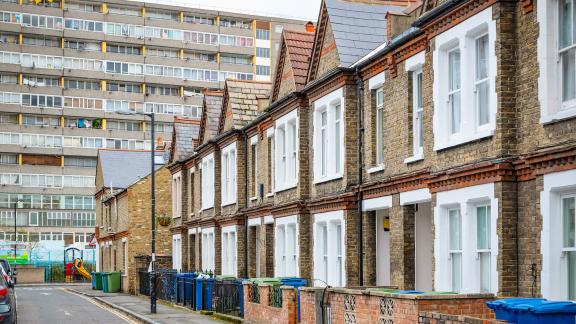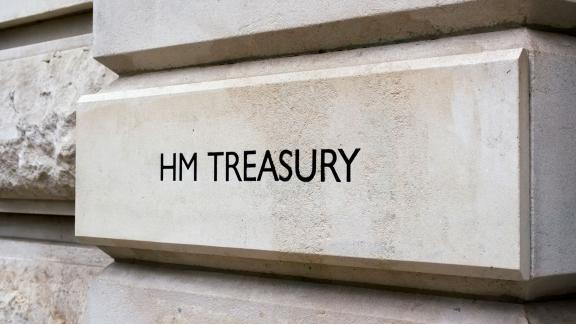NHS leaders make ‘unprecedented move’ urging government to act now on rising energy costs or risk public health emergency

NHS leaders across England, Wales and Northern Ireland are warning of rising numbers of people falling sick and worsening health outcomes across the country unless the government takes urgent action to limit further energy price increases.
They fear a widening of health inequalities and worsening health outcomes for people living in communities with the highest levels of deprivation if individuals and families are driven further into poverty because of excessive energy costs. A decision on the energy price cap is expected on 26 August, with the latest estimates suggesting that the cap could go as high as £4,200 by January.
NHS leaders predict that if households are not safeguarded from unaffordable energy price hikes, it will fall to local NHS and social care services to pick up the pieces, with increased hospital admissions and demand on GP surgeries, A&E departments, ambulances, care homes and other social care services.
It is highly unusual for NHS leaders to comment on energy prices. But such is the strength of concern that the NHS Confederation, on behalf of NHS leaders across the country, have penned a letter to the Chancellor calling for price rises to be limited and for targeted support for those individuals and families most in need.
Matthew Taylor, chief executive of the NHS Confederation, said: “The country is facing a humanitarian crisis. Many people could face the awful choice between skipping meals to heat their homes and having to live in in cold, damp and very unpleasant conditions. This in turn could lead to outbreaks of illness and sickness around the country and widen health inequalities, worsen children’s life chances and leave an indelible scar on local communities.
“These outbreaks will strike just as the NHS is likely to experience the most difficult winter on record. NHS leaders have made this unprecedented intervention as they know that fuel poverty will inevitably lead to significant extra demand on what are already very fragile services.
“Health leaders are clear that unless urgent action is taken by the government this will cause a public health emergency.”
In the letter, NHS leaders say that rapidly rising energy prices, alongside other cost of living pressures, will leave individuals and families across the UK facing impossible choices, such as either heating their homes and reducing spending on food and other essentials. They warn that if people are forced to live in cold homes and if they cannot afford nutritious food, then their health will quickly deteriorate.
They are very concerned that widespread fuel poverty will increase the already high number of annual deaths associated with cold homes – estimated at around 10,000 a year.
The NHS is already facing what many are predicting to be one of the toughest winters on record – due to the high demand on health services combined with predicted high levels of flu, norovirus and potentially further Covid outbreaks. NHS leaders warn that a failure to restrict energy price hikes will make the situation worse by increasing demand on already pressured health and social care services. As well as leading to more sickness and illness, they warn it will have a major impact on mental health and wellbeing and in social care.
NHS leaders want the government to set out a more targeted and detailed support package for those households who need it most in advance of the decision on the new energy price cap next week. With bills expected to go up by 82%, they warn that the Government’s current policy of providing £400 between April and October - paid in monthly instalments - will fall far short for those most in need, even alongside the one-off payments for recipients of Universal Credit, disability benefits and the winter fuel allowance.
Beatrice Fraenkel, chair of Mersey Care NHS Foundation trust said: “There is a strong correlation between rising energy prices and the health and well-being of the communities we serve and belong to. In turn this has a significant bearing on the increased demands placed on our health services.
“If people are unable to afford to adequately heat their homes or eat well, they are increasingly likely to fall ill and require the care of the NHS which is already under significant pressure. Whilst we as employers are doing all we can to mitigate against the situation this crisis is proving a real challenge for our staff personally and professionally.”
Jeremy Vanes, chair of Black Country Healthcare NHS Foundation trust said: “The population my organisation provides mental health services for is amongst the least wealthy in the UK, with over 45 per cent of people living within the lowest income bands
“We anticipate some will even struggle to keep their homes in the year ahead, such is the affordability crisis. Unquestionably this situation will have wide health effects, and further support should be well targeted”.
Katie Schmuecker, principal policy advisor at the Joseph Rowntree Foundation, said: “This unprecedented move from health and care leaders in England hammers home the fact that the rising cost of living is a national emergency.
“The rising price of essentials are a huge threat to health. It's morally indefensible that already people in some parts of the UK die years earlier than they should, and we cannot allow this injustice to be made worse this winter. Not being able to afford a warm home and healthy food causes untold stress and anxiety. It also affects physical health due to a lack of nutrition and infectious diseases made worse by the cold.
“Over 7 million households were already going without at least one essential like food in May. The number of people going without common necessities will become an unmanageable risk if nothing is done.”
Figures show that without further measures, and taking account the £400 rebate, fuel poverty rates will reach nearly 50 per cent from October and 55 per cent from January with over half of households in the UK in fuel poverty.
Living in fuel poverty will mean a drastic uptick in respiratory conditions, undernutrition, and even hospital admissions in children. Vulnerable older people living in cold conditions are also particularly at risk of heart attacks, stroke and falls.
About us
We are the membership organisation that brings together, supports and speaks for the whole healthcare system in England, Wales and Northern Ireland. The members we represent employ 1.5 million staff, care for more than 1 million patients a day and control £150 billion of public expenditure. We promote collaboration and partnership working as the key to improving population health, delivering high-quality care and reducing health inequalities.



